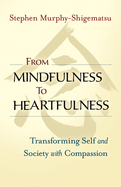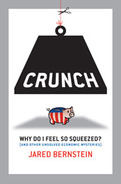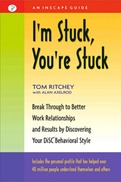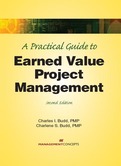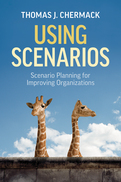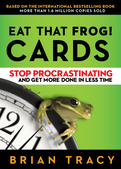Millions have found mindfulness to be a powerful practice for reducing stress, enhancing attention, and instilling tranquility. But it can offer so much more—it can transform you, make you more fully awake, alive, and aware of your connection to all beings. In Japanese, the character that best expresses mindfulness, 念, consists of two parts—the top part, 今, meaning “now,” and the bottom part, 心, meaning “heart.” Using stories from his own life as the son of an Irish father and a Japanese mother, a professor in Japan and America, a psychotherapist, a father, and a husband, Stephen Murphy-Shigematsu describes eight “heartfulness” principles that help us realize that the deepest expression of an enlightened mind is found in our relation to others.
2008
Is Social Security really going bust, and what does that mean to me? If I hire an immigrant, am I hurting a native-born worker? Why does the stock market go up when employment declines? Should I give that homeless guy a buck? What’s a “living wage”? How much can presidents really affect economic outcomes? What does the Federal Reserve Bank really do? And even when some pundits say the economy’s sound, why do I still feel so squeezed?
If you’d like some straight answers, premier economist Jared Bernstein is here to help. In Crunch he responds to dozens of questions he has fielded from working Americans, questions that directly relate to the bottom-line, dollars-and-cents concerns of real people. Chances are if there’s a stumper you’ve always wanted to ask an economist, it’s solved in this book.
Bernstein is fed up with “Darth Vaders with PhDs” who use their supposed expertise to intimidate average citizens and turn economics into a tool for the rich and powerful. In the pages of Crunch, Bernstein lays bare the dark secret of economics: it’s not an objective scientific discipline. It’s a set of decisions about the best way to organize our society to produce and distribute resources and opportunities. And we all can, and must, participate in these decisions. “America is a democracy,” he writes. “And in a democracy all of us, not just the elites and their scholarly shock troops, get to weigh in on biggies like this.”
To not weigh in, Bernstein insists, is a profoundly political act, one with damaging consequences. Our economy will be only as fair as we can make it. In this lively and irreverent tour through everyday economic mysteries, Bernstein helps us decode economic “analysis,” navigate through murky ethical quandaries, and make sound economicdecisions that reflect our deepest aspirations for ourselves, our families, and our country.
- Presents a personal profile that takes less than ten minutes to complete but offers lessons for a lifetime
- Helps you focus on your reactions to a particular situation, reflect on what’s working and what’s not, and act in more conscious and productive ways
- Exposes the limitations of traditional performance improvement strategies
Often when people feel stuck, they try to change something about themselves. Authors Ritchey and Axelrod suggest that instead they should learn to see situations in new ways and create new options for themselves and others. That process begins with DiSC, an assessment tool that reveals what style one typically uses: Dominance (direct and decisive), Influence (optimistic and outgoing), Supportive (sympathetic and accommodating), and Conscientious (concerned and correct).
This book teaches readers how to recognize their own style and its implications, how to read the style of others, and how to choose the most effective style (or combination of styles) for any situation. I’m Stuck, You’re Stuck will help readers better understand why they and other people do the things they do in difficult situations and learn to respond to these situations mindfully, respectfully, and effectively.
- Presents a personal profile that takes less than ten minutes to complete but offers lessons for a lifetime
- Helps you focus on your reactions to a particular situation, reflect on what’s working and what’s not, and act in more conscious and productive ways
- Exposes the limitations of traditional performance improvement strategies
Often when people feel stuck, they try to change something about themselves. Authors Ritchey and Axelrod suggest that instead they should learn to see situations in new ways and create new options for themselves and others. That process begins with DiSC, an assessment tool that reveals what style one typically uses: Dominance (direct and decisive), Influence (optimistic and outgoing), Supportive (sympathetic and accommodating), and Conscientious (concerned and correct).
This book teaches readers how to recognize their own style and its implications, how to read the style of others, and how to choose the most effective style (or combination of styles) for any situation. I’m Stuck, You’re Stuck will help readers better understand why they and other people do the things they do in difficult situations and learn to respond to these situations mindfully, respectfully, and effectively.
This completely revised and updated guide to earned value (EV) project management is the go-to choice for both corporate and government professionals. A Practical Guide to Earned Value Project Management, Second Edition, first offers a general overview of basic project management best practices and then delves into detailed information on EV metrics and criteria, EV reporting mechanisms, and the 32 criteria of earned value management systems (EVMS) promulgated by the American National Standards Institute and the Electronic Industries Alliance and adopted by the Department of Defense.
This second edition includes new material on:
• EV metrics
• Implementing EVMS
• Government contracts
• Time-based earned schedule metrics
• Critical chain methodologies
2022
To reap the full benefits of scenarios, you have to be able to apply them in the real world. This groundbreaking book goes beyond the theoretical to clearly explain different ways scenarios can be used in business decision-making—from strategic planning and financial modeling to crisis response. Connecting scenarios to strategy and action can have many benefits, including the ability to react quickly, anticipate major changes in the environment, and identify major opportunities.
Thomas Chermack, a top expert on scenario planning, offers seven specific ways organizations can use scenarios and provides a wide variety of examples, along with proven processes, exercises, and workshops that have been used successfully in organizations across industries and countries for more than fifteen years.
2017


